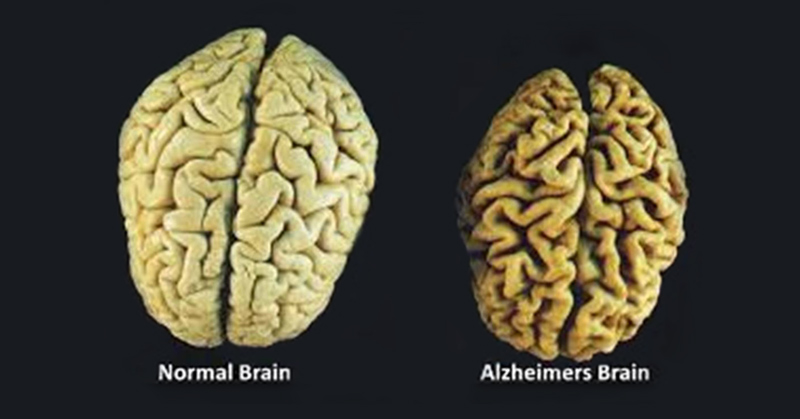One in five people older than 70 suffers from cognitive impairment, and it will progress to dementia and death in half of these people in five years. Therefore, we should try our best to prevent these issues.
Millions of Alzheimer’s disease cases can be prevented by controlling the risk factors, even though there is still no available cure for it.
A small 2002 study which involved 22 people with Alzheimer’s found high concentrations of homocysteine in their blood. In 1969, a Harvard pathologist reported two cases of children, one dating back to 1933, whose brains had turned to mush.
The children suffered from extremely rare genetic mutations that caused abnormally increased levels of homocysteine in their bodies.
Even today, homocysteine is considered to be “a strong, independent risk factor for the development of dementia and Alzheimer’s disease.” The risk will be doubled if the blood level is over 14 (µmol/L).
The Framingham Study found that one in six Alzheimer’s cases may be caused used by the increased homocysteine in the blood.
The human body needs three vitamins to detoxify homocysteine, folate, vitamin B12, and vitamin B6. The initial tests of their effects were disappointing, as supplementation did not seem to work.
Yet, a double-blind randomized controlled trial showed that the reduction of the levels of homocysteine by B vitamins can slow the rate of accelerated brain atrophy in people with mild cognitive impairment. Used
Aging causes an atrophy of the brain, but this shrinking is accelerated in the case of Alzheimer’s. Therefore, if we manage to slow the rate of brain loss, we might also decelerate the progress of this disease.
After 2 years of regular use, researchers found that B vitamins significantly slowed the rate of brain shrinkage, and reduced the rate of atrophy in those with high homocysteine levels twice.
A follow-up study reported that B-vitamin treatment reduces, by as much as seven-fold, the brain atrophy in the areas prone to the Alzheimer’s disease process.
Moreover, most people consume foods rich in B12 and B6, but they do not get sufficient amounts of folate. Apparently, 96 percent of Americans don’t even get the minimum recommended amount of dark green leafy vegetables.
Therefore, a plant-based diet might solve all these problems, as it will lower homocysteine levels by 20% in just one week, from around 11 mmoles per liter down to 9 mmoles per liter.
According to scientists, this is due to fiber, as every gram of it increases folate levels in the blood nearly 2%, probably by boosting vitamin production in the colon by the friendly gut bacteria, or as a result of the lower methionine intake.
Homocysteine is a breakdown product of methionine, which comes from animal protein. Its lower levels due to such a diet might contribute to the reduction of homocysteine levels as well.
Yet, a plant-based diet is not the only solution, since, for instance, even though vegetarians and vegans are getting more fiber and folate, they lack vitamin B12.
Also, vegans are at a higher risk of for suffering from hyperhomocysteinemia (excessive amounts of homocysteine in the blood) as they do not get the adequate doses of vitamin B12.
Therefore, the balance of these three vitamins is crucial, and you should optimize their levels in order to reap their benefits, and prevent brain loss.
Source: theheartysoul.com
